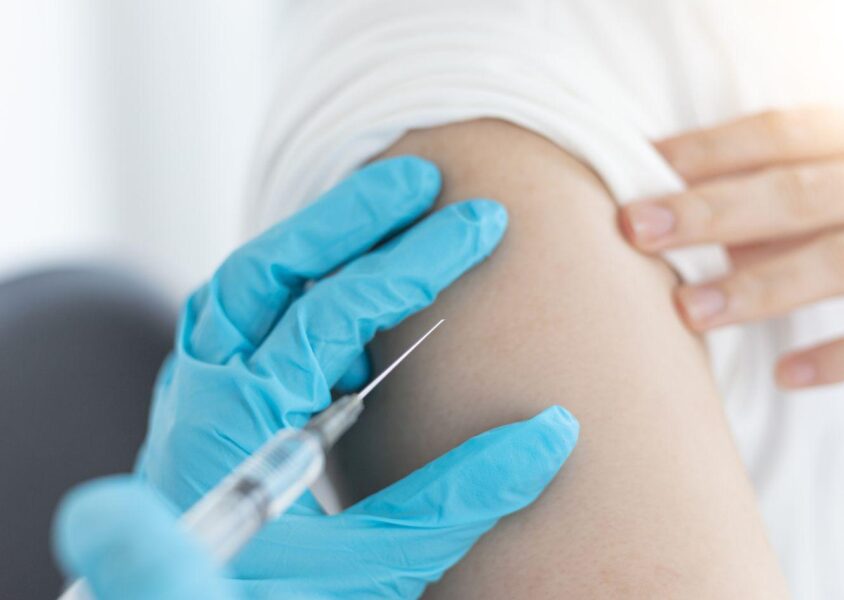Should I Get A Booster Shot?

It has been proven that mass vaccination is necessary to control the COVID-19 pandemic. COVID-19 is a highly contagious and potentially severe disease caused by the SARS-CoV-2 virus. It has spread rapidly around the world, leading to a global pandemic and causing significant illness, death, and economic disruption.
Vaccines are an effective way to prevent the spread of infectious diseases and protect individuals from becoming infected. Mass vaccination campaigns, in which large numbers of people are vaccinated at the same time, can help to slow or stop the spread of an infectious disease by creating herd immunity. Herd immunity occurs when a sufficient percentage of the population is immune to a disease, either through vaccination or previous infection, making it difficult for the disease to spread.
For COVID-19, mass vaccination is necessary to protect people from becoming infected, especially those who are at high risk of severe illness or death from the virus. It is also necessary to help slow or stop the spread of the disease, which can help to reduce the burden on healthcare systems and allow society to return to more normal activities.
Mass vaccination is an important tool in the fight against COVID-19 and will be necessary to help bring the pandemic under control.
The COVID-19 vaccine is a vaccine that is designed to help protect against the COVID-19 virus, which causes the disease COVID-19. There are currently several COVID-19 vaccines that have been authorized for emergency use by the US Food and Drug Administration (FDA).
COVID-19 booster shots are recommended to provide longer-lasting protection against the COVID-19 virus, which causes the disease COVID-19. Some COVID-19 vaccines may require booster shots to provide optimal protection against the virus, while others may not.
The COVID-19 virus is a new and rapidly evolving virus, and it is not yet known how long immunity to the virus lasts after vaccination. Some studies have shown that the immunity provided by the COVID-19 vaccine may wane over time, particularly in individuals who received the vaccine early in the pandemic.
Boosters shots may help to boost the body’s immunity to the COVID-19 virus and provide longer-lasting protection against the disease. They may also help to reduce the risk of outbreaks and protect vulnerable populations, such as older adults and individuals with underlying health conditions, who may be at higher risk of severe illness from COVID-19.
The Centers for Disease Control and Prevention (CDC) recommends that adults get booster shots for COVID-19 based on the specific vaccine they received. For example, the Pfizer-BioNTech COVID-19 vaccine is currently recommended to be given in two doses, spaced 3-4 weeks apart. The Moderna COVID-19 vaccine is also recommended to be given in two doses, spaced 4 weeks apart.
If you are still skeptical if vaccination for COVID would help or not, please note that mass vaccination campaigns all through the history has helped eliminate major diseases.
Mass vaccination is necessary to control the COVID-19 pandemic. COVID-19 is a highly contagious and potentially severe disease caused by the SARS-CoV-2 virus. It has spread rapidly around the world, leading to a global pandemic and causing significant illness, death, and economic disruption.
Vaccines are an effective way to prevent the spread of infectious diseases and protect individuals from becoming infected. Mass vaccination campaigns, in which large numbers of people are vaccinated at the same time, can help to slow or stop the spread of an infectious disease by creating herd immunity. Herd immunity occurs when a sufficient percentage of the population is immune to a disease, either through vaccination or previous infection, making it difficult for the disease to spread.
Smallpox: Smallpox is a highly contagious and deadly disease caused by the variola virus. A mass vaccination campaign using the smallpox vaccine, developed in the late 18th century, helped to eliminate smallpox globally by 1979. This was achieved through a combination of vaccination and quarantine measures, as well as the destruction of smallpox virus stocks.
Polio: Polio is a viral disease that can cause paralysis and death. A mass vaccination campaign using the oral polio vaccine, developed in the 1950s, has helped to greatly reduce the number of polio cases globally. As a result, polio is now considered to be on the verge of eradication, with only a few remaining cases reported each year.
Measles: Measles is a highly contagious disease caused by a virus that can cause severe illness and death, especially in young children. Mass vaccination campaigns using the measles vaccine have helped to greatly reduce the number of measles cases globally. As a result, measles is now considered to be on the verge of eradication, with only a few remaining cases reported each year.
For COVID-19, mass vaccination is necessary to protect people from becoming infected, especially those who are at high risk of severe illness or death from the virus. It is also necessary to help slow or stop the spread of the disease, which can help to reduce the burden on healthcare systems and allow society to return to more normal activities.